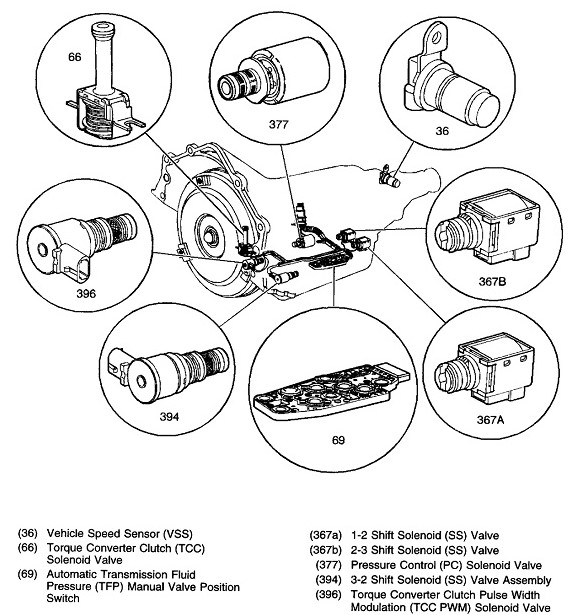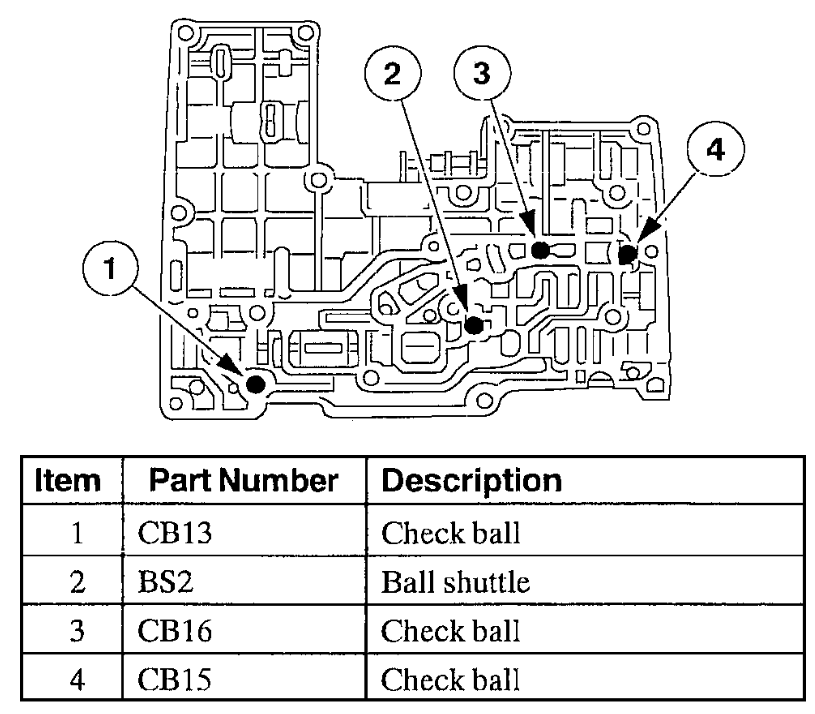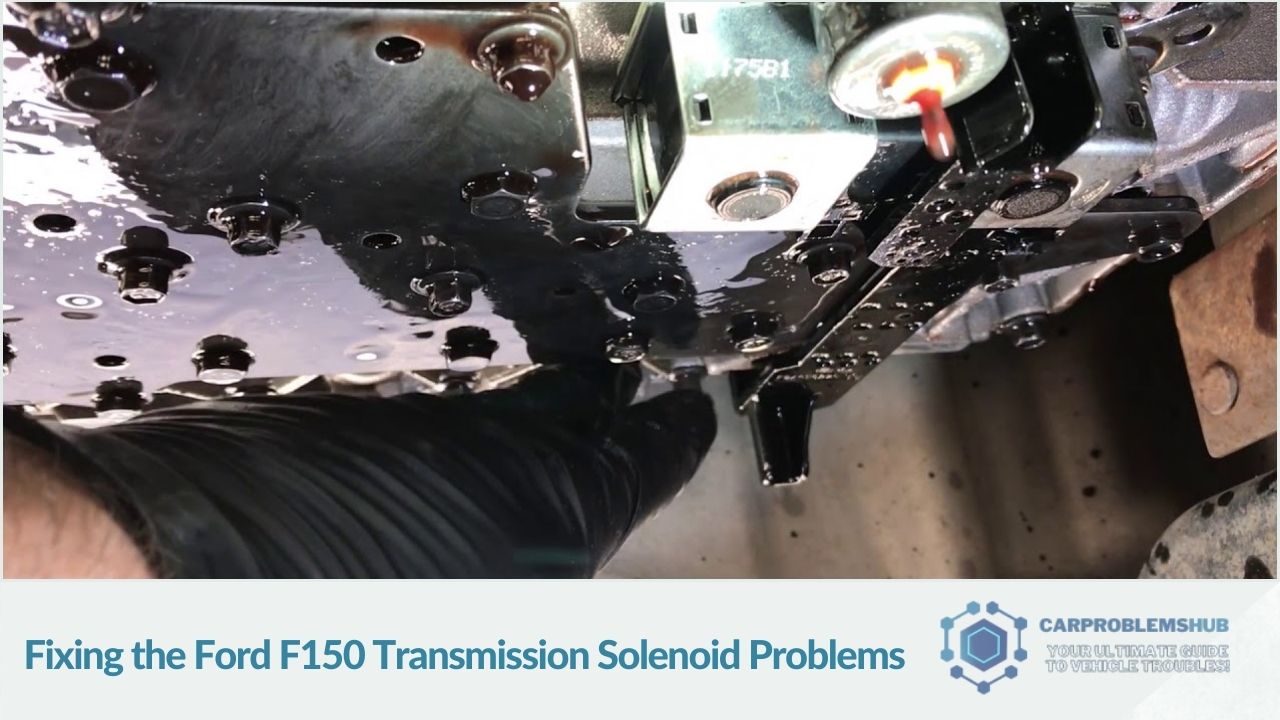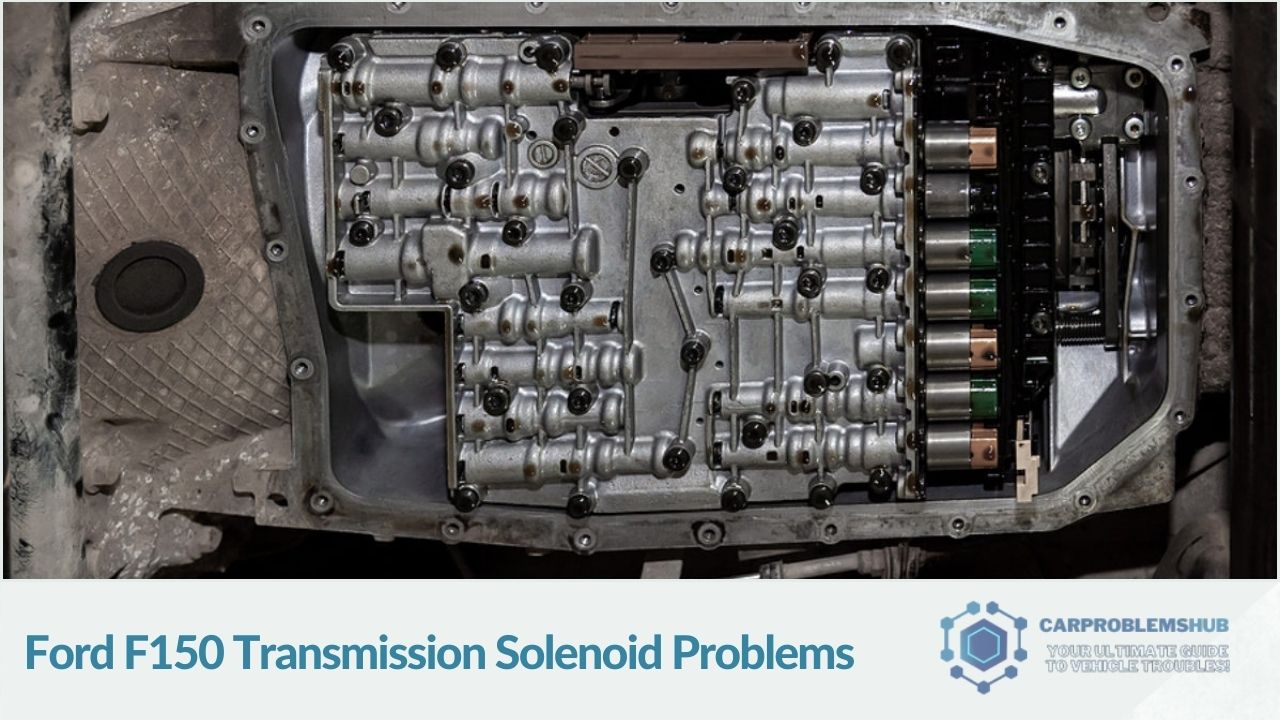Ah, the Ford F-150. It’s not just a truck; it’s an icon. Selling nearly twice as many units as its closest competitor, this beast dominates the roads. But even the mightiest have their Achilles’ heel. For the F-150, it’s the transmission solenoid. But what’s that, you might wonder? Let’s dive deep.
🎯Suggested article: The 7 Most Common Ford 6.7 Diesel Problems and Their Cost
Understanding the Transmission Solenoid

What is it?
In layperson’s terms, a solenoid is like a traffic cop for your transmission fluid. It decides where the liquid goes, ensuring your gears shift smoothly. Think of it as the middleman between your car’s brain (the ECU and TCM) and its brawn (the transmission).
How does it work?
Picture this: a plunger surrounded by a magnetic coil. When the car’s computer sends a signal, the lock activates, moving the plunger and directing the transmission fluid. It’s like turning on a tap, but you’re controlling pressurized fluid that makes your car shift gears instead of water.
The Downfall of the Solenoid

Why do they fail?
Imagine working in a hot and cold environment, submerged in fluid, and constantly told what to do. That’s the life of a solenoid. Over time, this harsh environment can cause wear and tear. Add contaminants like dirt or oil, and you have a recipe for failure.
How can you tell?
If your F-150 starts acting up, like erratic shifting or refusing to shift gears, it’s essential to note that your solenoid might be crying out for help. And if your check engine light pops on? Well, that’s your car’s way of saying, “Hey, something’s not right here!”
Fixing the Ford F150 Transmission Solenoid Problems

DIY or Professional Help?
First things first, get a diagnosis. It’s like going to the doctor; you need to know what’s wrong before you can fix it. If you’re a hands-on person, consider tackling the problem yourself. But if diving into your transmission gives you the heebie-jeebies, it’s best to leave it to the pros.
What’s the damage?
You might need to replace a single solenoid if you’re lucky, setting you back around $50-$80. But if the entire solenoid block is kaput, you’re looking at a $250-$700 bill for parts alone. Throw labor costs, and you could be shelling out over a grand.
🎯Suggested article: 2024 Ford Mustang GT: Digital Age Meets Classic Power
In Conclusion
The Ford F-150 is a powerhouse, no doubt about it. But like all machines, it has its quirks. The transmission solenoid is one such quirk. But now that you’re armed with knowledge, you’re ready to tackle any Ford F150 transmission solenoid problems that come your way. Safe driving!
🔗 Similar content: Chrysler Auto Start Stop Warning Light
Was this page helpful?


Similar Problems in Other Models
Ford 6.7 Diesel Problems (7 Common Issue)
Ford Duratorq 2.2 Diesel Engine Problems and Solutions
Ford HF35 Transmission Problems and Troubleshooting
P2872 Ford Focus Problems, Solutions and Costs
Ford Escape CV Joint Problems, Causes and Costs
Ford DEF Pump Problems: Causes, Symptoms, and Solutions
Ford F150 Slip Yoke Problems: A Guide for Smooth Driving
Ford 4.6 Spark Plug Problems and Solutions
Ford Super Duty Drag Link Problems and Repair
Ford Intelligent 4WD Problems and Solutions
Car News and Reviews
Would you like to take a look at the car news and reviews we have carefully selected and published for you?
2024 Lucid Air Prices Go Down
GM's Big Road Network for Hands-Free Driving
DTC C0561-71 Vacuum Sensor Code on GM, GMC and Chevy
C1201 Code Toyota and Lexus (Causes and Solutions)
Chrysler Auto Start Stop Warning Light (Causes and Solutions)
2024 Ford Mustang GT: Digital Age Meets Classic Power
The 2024 Chevrolet Silverado 2500HD ZR2: An Off-Road Marvel
2024 Chevy Colorado ZR2 Bison: The Ultimate Off-Road Experience
The 2024 Lucid Air Sapphire Track Drive Experience
2024 Subaru Forester Review, Specs, Price, Release Date